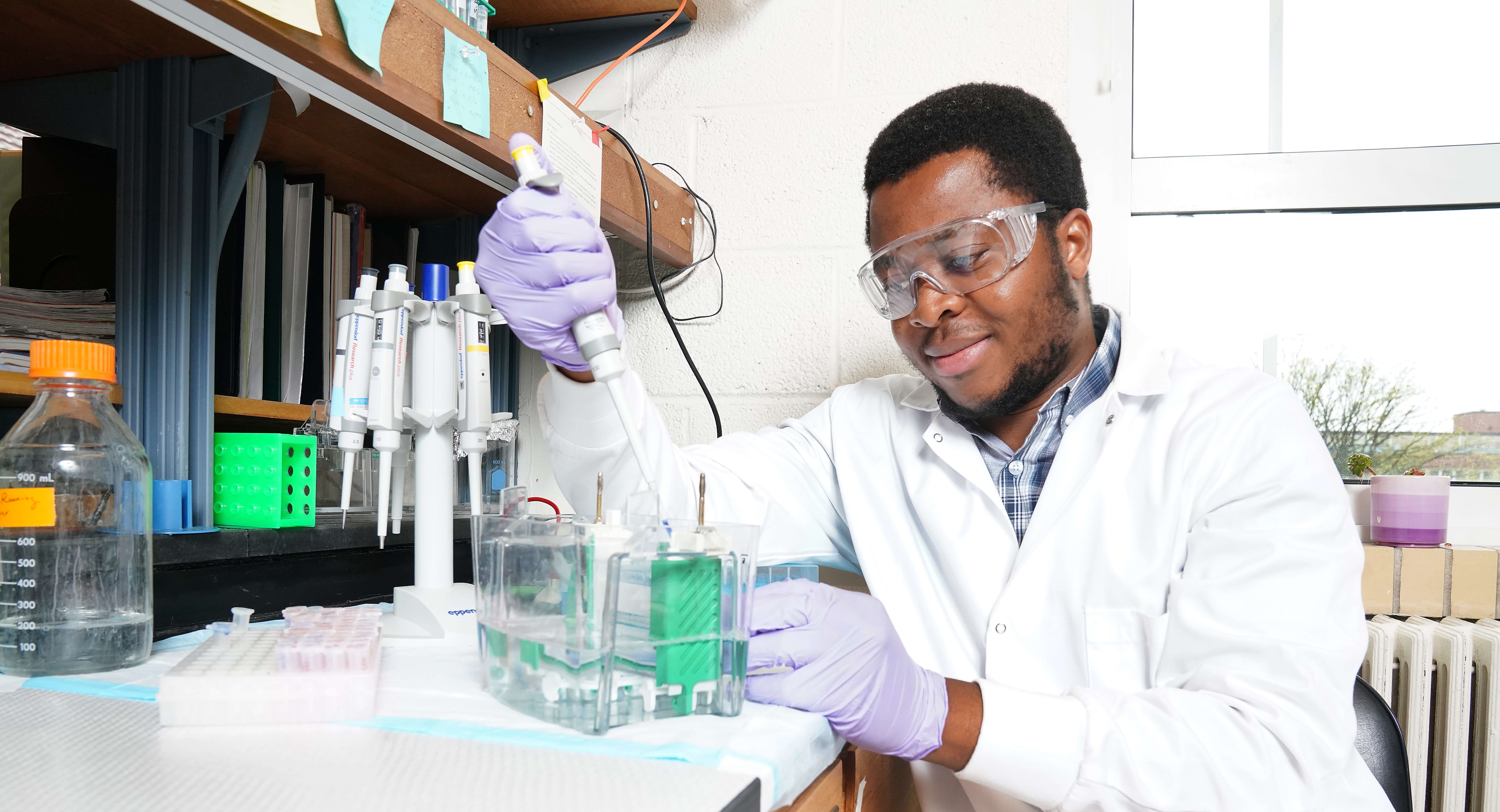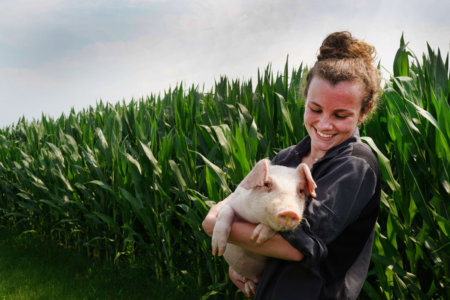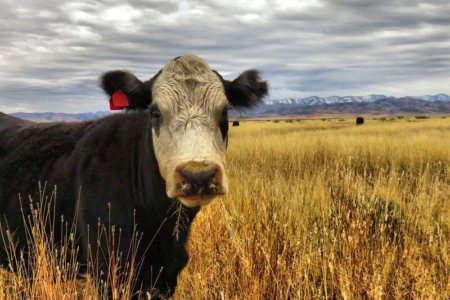When Ogechukwu Ezenwa first arrived at Purdue University from Nigeria, she was filled with doubt. “I remember calling my mom and telling her I wanted to go home. She encouraged me to keep pushing through, and I did.”
Ezenwa explains that she felt a sense of comfort the second she stepped into her first Purdue Agriculture class. Today, the biochemistry major and once introverted student is thriving.
As the vice president of the Nigerian Student Association, she helped new students find their footing. She also served as a member of the Civic Engagement and Leadership program (CELD), designed to help students find their civic identities through leadership and volunteer activities.
Ezenwa went on to become a certified instructor of leadership courses, helping other students discover ways to uplift communities while boosting their skill sets.

By fusing her passion for science, research and altruism, Ogechukwu Ezenwa is thriving at Purdue University’s College of Agriculture. Source: Purdue University
“Participating in CELD allowed me to guide other students towards great opportunities, but it also opened a lot of doors for me,” Ezenwa says. “I met a lot of people I wouldn’t have otherwise met.”
She also finds success in the classroom and lab. She works alongside professor of biochemistry and associate department head, Joseph Ogas. In his lab, Ezenwa focuses on better understanding the mediator complex in plants, a process of communication between DNA and RNA enzymes, and how it can inform genetic studies in animals. The experience helped her pinpoint her life’s calling.
“I want to work on the animal and human side of biochemistry but in a research setting,” she says. “That’s something Purdue helped me realize.” That, and how intertwined agriculture is with sciences like chemistry and biology.
Ezenwa combined her passion for science, research and altruism. Agriculture, she says, offers the best opportunities for working at that intersection.
At this leading land-grant institution, students gain the inspiration and knowledge to make a difference. Whether interested in the environment, global hunger, agricultural sciences or business, students can explore where their futures might lead them.
Last year, Alyson McGovern, then a food science junior, led a collaborative project between her department and entomology to sell honey produced and processed by the two departments. Project Boiler Bee Honey received rave reviews, selling out its first batch. The proceeds were given back to the entomology and food science departments to cover production costs and fund bee research
The team and their peers had to leave campus due to COVID-19 lockdowns in March 2020. Once it was safe, however, McGovern led her team back to the lab, producing 4,000 bottles, plus 50 one-gallon jugs and several 30-gallon drums –– around double their previous batch.
“We put out a high-quality product, all while using full PPE and completely new operating procedures. This project really showed the value of giving students something to be a part of.”
The gratification McGovern found in food science, Nira Grynheim, originally from Öskemen, Kazakhstan, found in animal sciences –– a field she was intrigued by, although slightly hesitant about initially.
“Coming to Purdue, I loved animal sciences, but I was worried about the agricultural side of it,” she explains. “I’m from a city. I’d pet cows before, but I didn’t know anything about agriculture.”
A few classes were all it took for Grynheim to realize what agriculture is all about. “It’s innovation and it’s creation.”
That revelation inspired her to study animal behavior and well-being while pursuing minors in critical disability studies and psychology. When she isn’t drawing life lessons from two and four-legged animals, she shares her personal lessons with students in Minorities in Agriculture, Natural Resources and Related Sciences (MANRRS). This national society empowers students to find their place, step out of their comfort zone, and achieve excellence –– much like current Purdue MANRRS president Grynheim.
Ninety-six percent of Purdue Agriculture graduates find employment or are continuing their education within six months of graduation. To find out how Purdue Agriculture students are sowing, planting and growing sustainable futures, click here.
Follow Purdue University on Facebook, Instagram, Twitter, and YouTube













